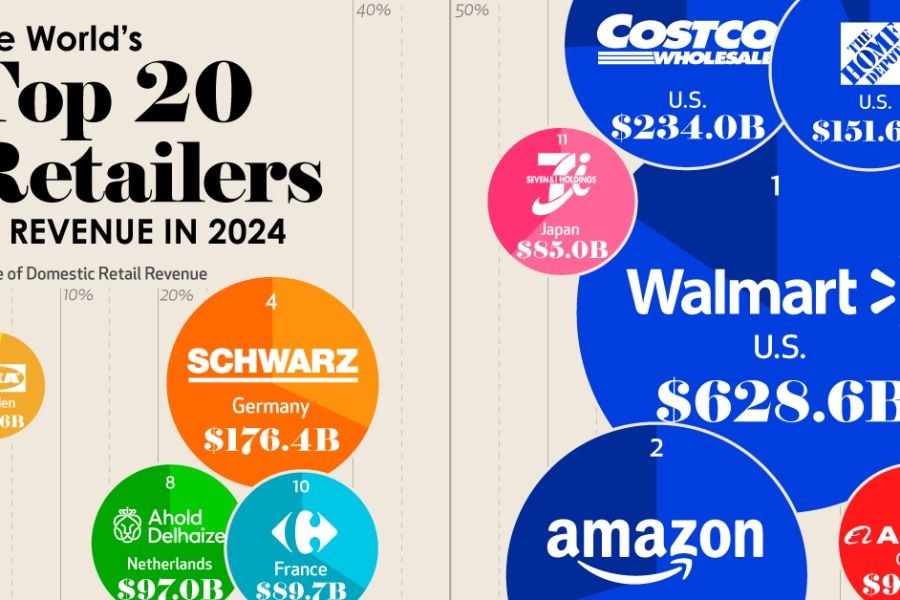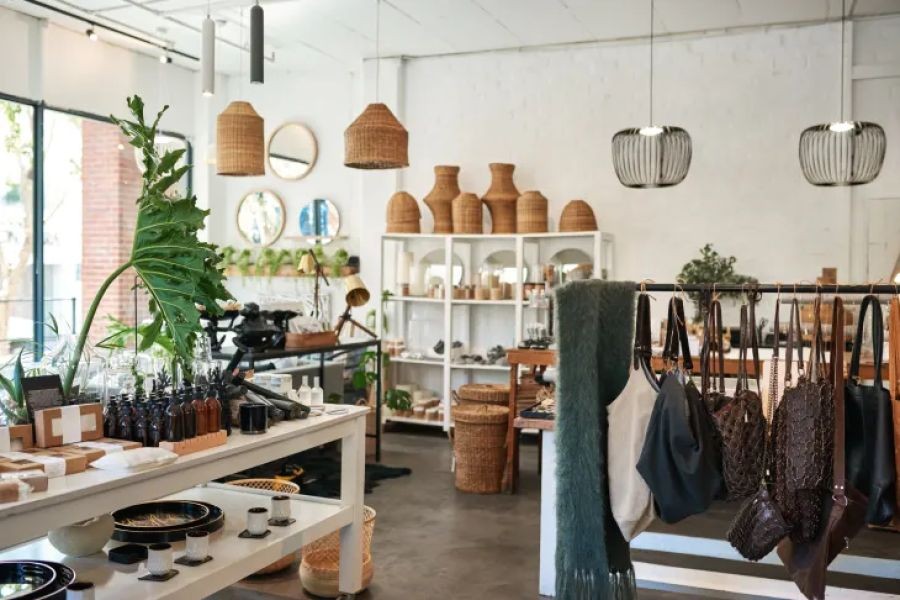Australia's retail landscape has undergone a seismic shift, with large retailers increasingly dominating the market, often at the expense of small, independent shops. This trend is not merely a reflection of consumer preferences but is deeply rooted in economic dynamics, regulatory frameworks, and competitive strategies. In this article, we delve into how big retailers are driving small shops out of business in Australia, backed by data, real-world examples, and expert insights.
The Rise of Big Retailers: A Deeper Look
The expansion of big retailers in Australia can be attributed to their ability to leverage economies of scale, offering lower prices and a wider variety of products. According to the Australian Bureau of Statistics (ABS), in 2023, major retailers accounted for over 70% of total retail sales, a significant increase from previous years. This growth is supported by advanced logistics, strong supplier networks, and aggressive marketing strategies that small shops often struggle to compete with.
Case Study: Woolworths and Coles Dominance
Woolworths and Coles, two of Australia's largest supermarket chains, exemplify this trend. These giants have expanded their reach by introducing private label products, enhancing online shopping experiences, and offering loyalty programs that bind customers to their brands. As a result, many small grocery stores have been pushed out of the market. In 2022 alone, over 500 independent grocery stores closed, citing unsustainable competition from these supermarket chains.
Economic and Regulatory Factors
Australia's economic policies and regulatory frameworks play a crucial role in shaping the retail landscape. Big retailers benefit from tax incentives and subsidies that are often inaccessible to smaller businesses. Moreover, the Australian Competition & Consumer Commission (ACCC) has been scrutinizing anti-competitive practices, yet the sheer market power of large retailers often leaves little room for intervention.
Data from the Treasury AU reveals that while big retailers enjoy a lower effective tax rate due to various deductions and credits, small businesses face a heavier tax burden, impacting their profitability and ability to compete. This disparity exacerbates the challenges faced by independent retailers.
Pros and Cons: Big Retailers vs. Small Shops
Pros of Big Retailers:
- Cost Efficiency: Large retailers can offer lower prices due to bulk purchasing and streamlined operations.
- Product Variety: Extensive product ranges cater to diverse consumer needs.
- Convenience: With multiple locations and online shopping options, big retailers provide superior convenience.
Cons of Big Retailers:
- Market Dominance: Their overwhelming presence stifles competition, limiting consumer choice.
- Local Economy Impact: Small shops contribute more to local economies by sourcing locally and reinvesting profits.
- Homogenization: Big retailers often promote uniform products, reducing market diversity.
Common Myths and Mistakes
Myth: "Big retailers always offer better deals."
Reality: While big retailers often have lower prices, small shops can offer unique products and personalized services that add value beyond price.
Myth: "Online shopping is only beneficial for big retailers."
Reality: In fact, many small shops have successfully integrated e-commerce to reach wider audiences and improve sales.
Future Trends and Predictions
The future of retail in Australia will likely see further consolidation among big retailers, but there are opportunities for small shops to survive and thrive. Digital transformation, niche marketing, and community-focused initiatives are strategies small retailers can adopt to differentiate themselves.
According to the Reserve Bank of Australia (RBA), the integration of technology in retail is expected to increase by 45% by 2026, and small businesses that embrace digital tools will be better positioned to compete. Moreover, consumer trends indicate a growing preference for sustainable and locally-sourced products, a niche that small retailers can exploit.
Conclusion
The dominance of big retailers in Australia presents significant challenges for small shops, but it also offers lessons in adaptation and innovation. By leveraging technology, focusing on unique value propositions, and advocating for fair regulatory practices, small retailers can carve out a sustainable place in the market. As consumers become more aware of the broader impacts of their purchasing decisions, the future of retail in Australia may yet see a more balanced landscape.
What strategies do you think small retailers should adopt to compete with large chains? Share your insights below!
People Also Ask
- How are small businesses affected by big retailers in Australia? Big retailers' market dominance often leads to reduced consumer traffic and higher operational costs for small businesses, forcing many to close.
- What can small shops do to compete with large retailers? Small shops can focus on niche markets, personalize customer service, and leverage digital platforms to reach broader audiences.
- Are there any regulations protecting small businesses in Australia? The ACCC monitors anti-competitive practices, but small businesses often face challenges in accessing the same benefits as larger corporations.
Related Search Queries
- Impact of big retailers on small businesses in Australia
- Strategies for small shops to compete with large retailers
- Australian Competition & Consumer Commission retail regulations
- Future of retail in Australia
- How technology is transforming Australian retail

































DakotaChar
9 months ago